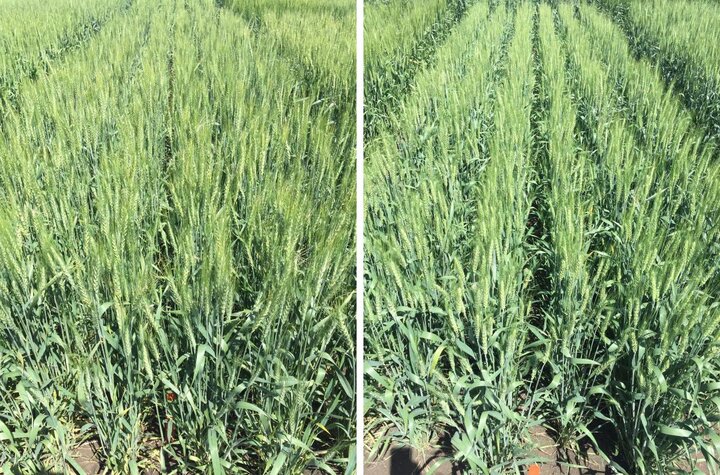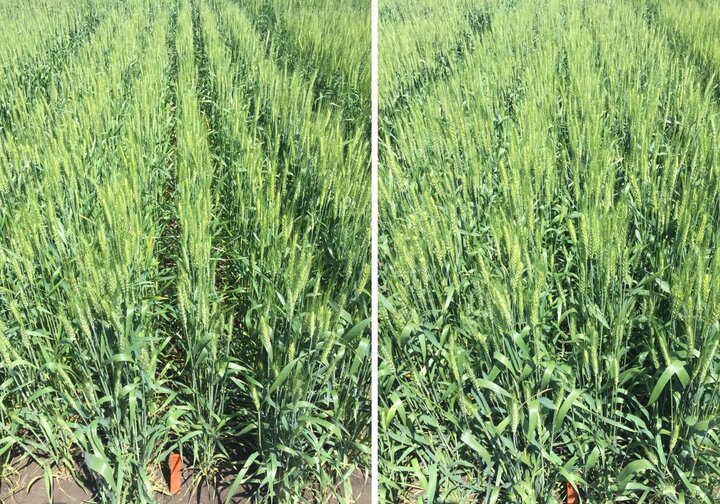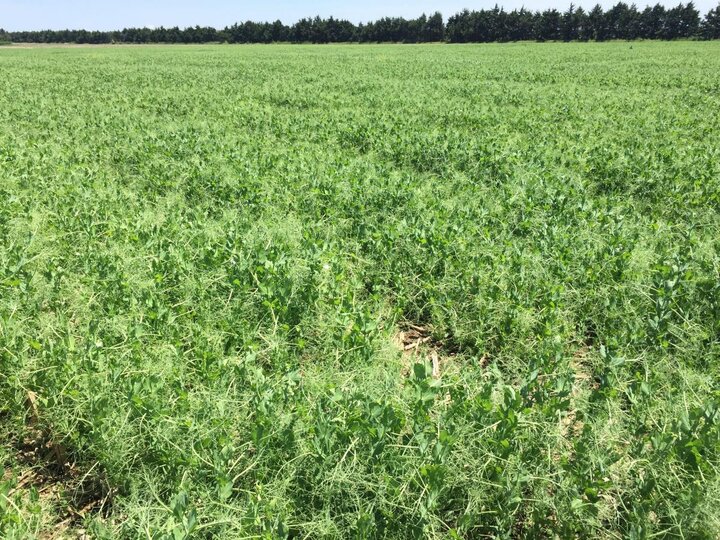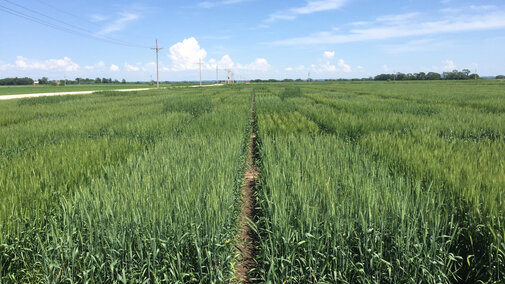A more diverse crop rotation can play a fundamental role in managing yield-limiting factors. Additionally, intensification (i.e., double cropping) of the current cropping system to leverage moisture and sunlight along with potential long-term soil health benefits is an area of growing interest and challenge for researchers, agronomists, and producers.
Consumers and end-users are becoming more interested in quality, nutrient density, and where and how their food is produced, all at an affordable cost. As a result, the inaugural eastern Nebraska wheat, pulse crop, and double crop field day was held in 2018. Over 100 crop growers, cattle producers, crop consultants, industry reps, university staff, and others attended the field day last year.



Join Nebraska Extension and sponsors again in 2019 as we learn more together about producing winter wheat, pulse crops, and double crops in the eastern Nebraska cropping system. Keep reading to learn more about what field research demonstrations are in place and what we will be viewing and discussing as a group.
2019 Eastern Nebraska Wheat, Pulse, and Double Crop Field Day
When: Tuesday, June 18 from 9 a.m. to 4 p.m. Registration with coffee and donuts from 8:30 to 9:00 am. If you can’t attend all day, no problem, come when you can!
Where: Eastern Nebraska Research and Extension Center (ENREC) at 1071 County Road G, Ithaca in Saunders County
Pre-register for lunch: The field day is free, but we ask you to please pre-register by Friday, June 14 for lunch. We want to make sure we have enough food. Pre-register at http://croptechcafe.org/wheatpulsefieldday/
Agenda: View the program flyer, download and share with a friend!
Winter Wheat – Trials and Demonstrations
Winter wheat variety selection is the most important factor driving yield in eastern Nebraska, causing as much as an 18-bushel-per-acre difference. That’s why the University of Nebraska conducts third-party variety trials at five locations (Clay, Jefferson, Lancaster, Saunders, and Washington counties) each year in eastern Nebraska. Attendees at this field day and tour can view 25 varieties, learning about the important traits of each variety (Figure 1), and get a look at new varieties for fall 2019 planting (Figure 2).
The second most important factor driving yield is disease management. Attendees will be able to see disease symptoms in the field, learn how to identify those diseases, and management strategies for common diseases such as leaf and stripe rust, bacterial leaf streak, and Fusarium head blight.
Nitrogen and sulfur fertility for winter wheat are critical to both yield and grain quality. Attendees will be able to see new research being conducted on nitrogen rate (0%, 25%, 50%, 75%, 100%, and 125% of recommended nitrogen) and time of application (fall, spring, and split application) (Figure 3). Additional research on how the nitrogen-sulfur interaction impacts grain quality will also be discussed. Attendees will be able to watch an active drone and sensor demonstration at the wheat fertility study location, part of these new research studies.
Want to learn more before attending! Read these recent CropWatch articles about wheat production in eastern Nebraska:
- 2018 Winter Wheat Variety Trial Results in Eastern Nebraska
- Eastern Nebraska Wheat Update – May 3, 2019
- Bacterial Leaf Streak in Eastern Nebraska
- Wheat Disease Update, June 7, 2019
Pulse Crops – Trials and Discussion
What are pulse crops? Attendees will visit the variety trials and demonstrations of cool-season legumes, including field peas and lentils at the 2019 field day (Figure 4). As a new crop in eastern Nebraska, there is a lot to learn about growing pulses. This is the second year of pulse crop work at the Eastern Nebraska Research and Extension Center near Mead, so check out last year’s results and come view how the crop is shaping up in 2019.
Double Crops – 2018 Results and 2019 Planning Discussion
There are many ways to capture additional income following wheat and pulse crop harvest in eastern Nebraska. Join us in discussing last year’s results and learn about double crop options and recommendations for 2019. Attendees will learn not just about double crop grain options, but the potential value some double crop forages have for cattle in the operation.
For information on other tours, see Wheat and Small Grain Field Days Across the State in CropWatch.

